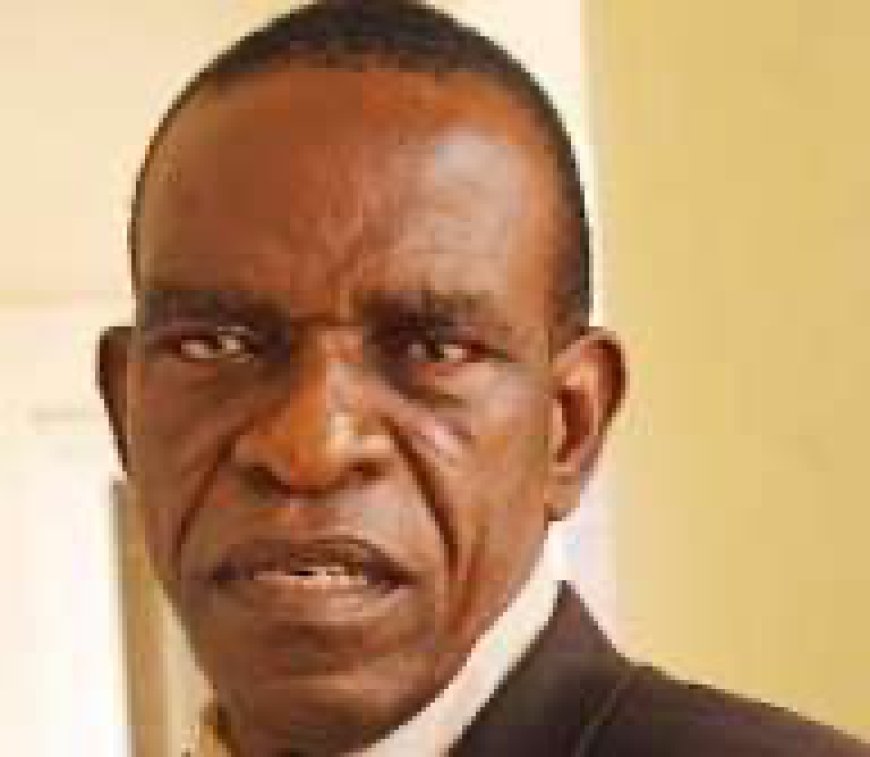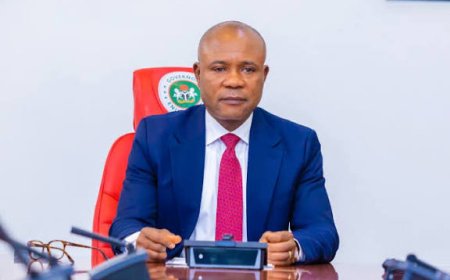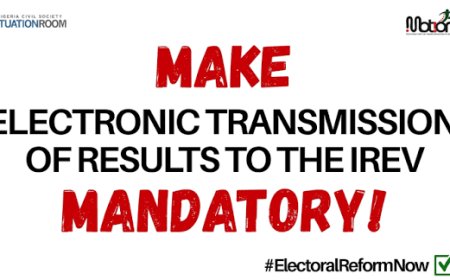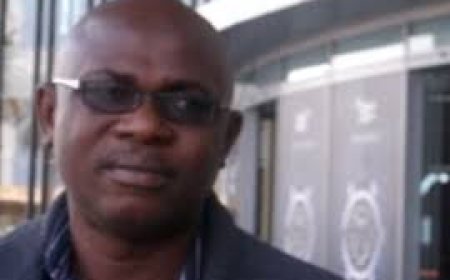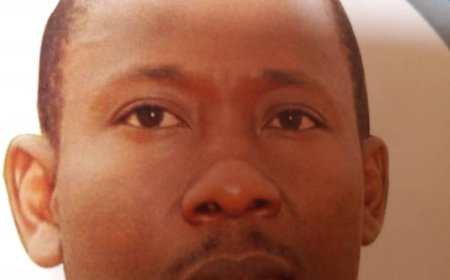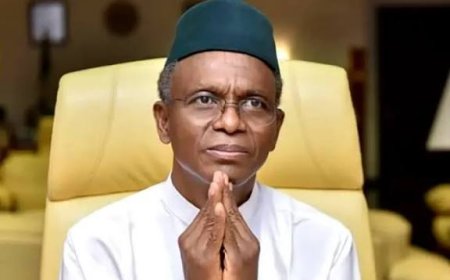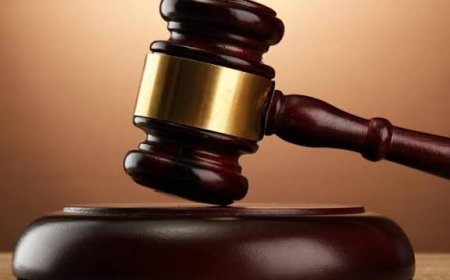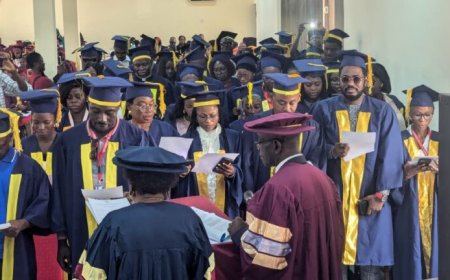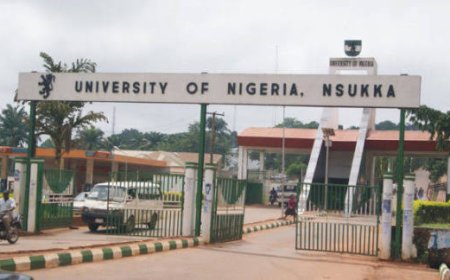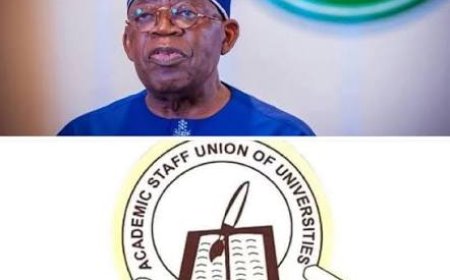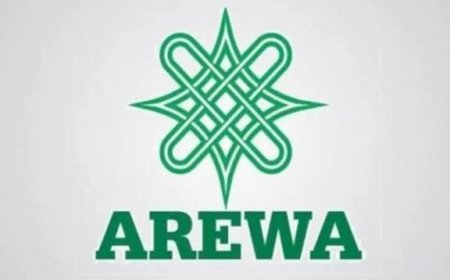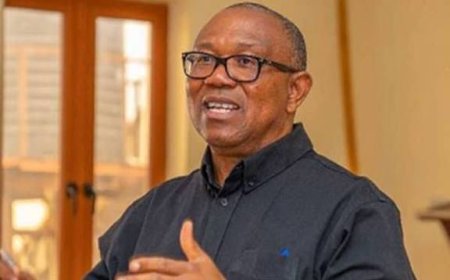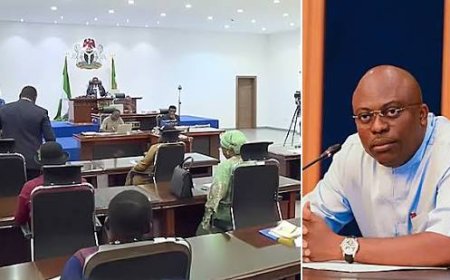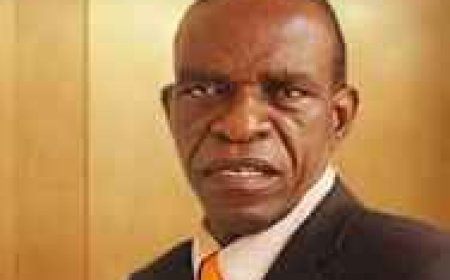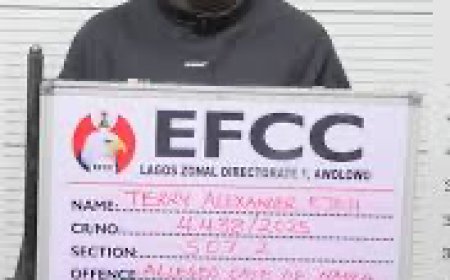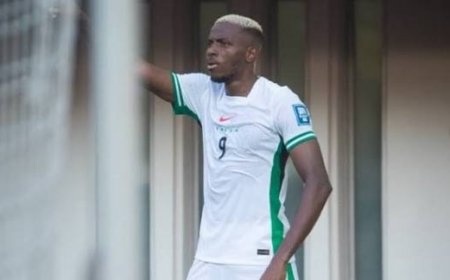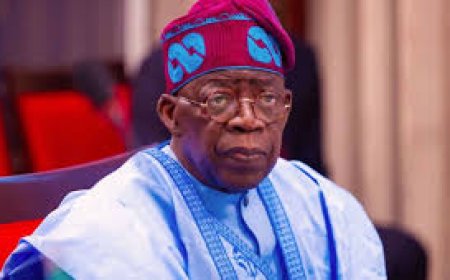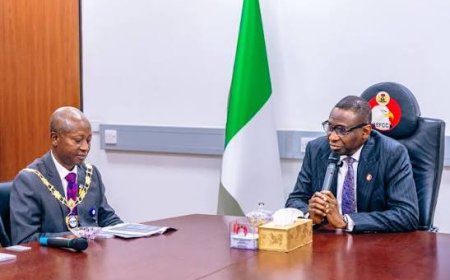By Ike Abonyi
" _In the absence of Justice, what is sovereignty but organised robbery?"_ - St. Augustine
As one explores the discussion surrounding President Donald Trump’s designation of Nigeria as a country of particular concern (CPC), I find myself intrigued by the complex dynamics at play. I've noted how curiously China is taking the lead in the anti-American arguments, asserting that Nigeria’s sovereignty should be respected and even offering to help Nigeria combat the perceived interference from the U.S. This has piqued my curiosity about the underlying dynamics at play.
For context, China has an estimated population of 1.4 billion, with only about 5% identifying as Christians, while the U.S. has a population of approximately 340 million, with 73% identifying as Christians. Interestingly, China, which now claims to support Nigeria against the U.S., has been implicated in the growing insecurity in northern Nigeria, particularly in Zamfara state, where it leads a gold mining industry barzar that has not contributed to reducing violence in the region.
Apart from Borno state, known as the epicenter of terrorism in Nigeria, Zamfara has suffered immense loss of life more than any other state in the country. Despite this, China has made no significant contributions to mitigate this violence; instead, it seems to exacerbate the situation by allegedly constructing artificial airports to facilitate the export of its gains. It's therefore perplexing how China has positioned itself as a major ally for Nigeria against America, especially in light of the U.S. government's actions against harmful influences.
To delve deeper into the topic, I sought a third perspective on the matter, posing some hypothetical yet pointed questions. One of those was: can a wife-beater claim privacy when his actions are being observed by neighbours attempting to assist the victim? The response I received emphasised that this is a crucial issue at the intersection of domestic violence law and policy. In most jurisdictions, the abuser's claim to privacy does not override the imperative to protect the victim and uphold laws against domestic violence.
Here's a breakdown of the key legal principles: safety takes precedence over privacy. Domestic violence is recognised as a serious crime and a matter of public concern, not merely a private family matter. The government and courts have a vested interest in preventing crime and protecting individuals, particularly in life-threatening situations. Legal tools specifically designed for domestic violence, such as Protection Orders, Restraining Orders, and Intervention Orders, exist to curtail the abuser's freedom. These orders can compel the abuser to leave the shared residence, prohibit contact with the victim or children, require the surrender of firearms, and mandate attendance in batterer intervention programs.
Additionally, law enforcement and other agencies are often required to intervene—through mandatory arrest or other measures—when there is evidence of domestic violence, even if the victim is reluctant to seek help. This approach reflects the understanding that domestic abuse is not only a personal issue but also a crime against society.
In summary, when a spouse’s safety is at risk due to domestic abuse, the legal and public policy priority is to protect the victim and hold the abuser accountable. Therefore, the abuser's claim to privacy does not constitute a valid barrier to necessary intervention.
Drawing on this analysis, I posed another question: Can Nigeria assert its sovereignty rights if it fails to protect its citizens from threatening fundamentalists? The response I received acknowledged the complexities surrounding sovereignty. While Nigeria indeed has the right to defend its sovereignty, the international community also bears a responsibility to protect civilians from atrocities. The rising tensions between Nigeria and the U.S. over allegations of religious persecution and Trump’s threats of military action illustrate these complexities.
In reality, sovereignty isn’t solely about a nation’s ability to protect its citizens; it also involves the capacity to address internal conflicts and maintain stability. Nigeria's legitimacy as a sovereign entity is not only defined by its ability to combat terrorism but also by its efforts to confront the root causes of such conflicts and advocate for the welfare of its people.
To add voice to the debate, I invited a neutral party for a more rational discussion, as many contributions to the discourse seem to be fueled by bias, overshadowing the significance of human lives. And I put the question, if an individual persistently abuses their spouse, and that spouse calls for help—and gets no response due to the abuser's claimed privacy rights—what are the options available to the victim? The victim, having explored various options to escape the abusive environment, finds herself overwhelmed until assistance arrives from observant neighbours who have witnessed the ongoing situation. In such circumstances, the need for intervention becomes not just a legal obligation but a moral imperative.
In this context, a notable figure advocating for change is the Catholic Bishop of the Makurdi Diocese, Most Rev. Wilfred Anagbe. His efforts to raise awareness have reached the global community, including former President Donald Trump, highlighting a pressing situation that demands attention. This increased awareness presents an opportunity for meaningful dialogue about the urgent needs of those affected, particularly as the Nigerian government grapples with challenges related to public safety and welfare.
The adage suggests that while a thief’s actions are noticed daily, the harm inflicted on victims often goes unrecognised until significant consequences arise. It appears that the moment for acknowledgement has arrived, as society begins to hold accountable those benefitting from corruption and wrongdoing. The conversation around wealth obtained at the expense of others is crucial, and it is encouraging to see scrutiny being directed where it is due.
The world’s characterisation as a global village highlights the interconnectedness of societies, especially in addressing issues like terrorism and crime. The ongoing threat posed by Boko Haram in Nigeria, targeting various groups since 2009, underscores the need for collaborative efforts to restore peace and security.
Initially, the group targeted Christians and Western-aligned Muslims, but has escalated its campaign into an all-out war against everyone, operating under various names—bandits, Fulani herdsmen, kidnappers, and unknown gunmen.
Despite the increasing atrocities, the defence budget to address these issues has grown without yielding results. Instead, individuals managing the security crisis seem to be benefiting personally from the chaos. As violence escalated, it became less newsworthy, even for the media, which usually prioritises human lives. Curiously, government officials managing insecurity began suggesting that the murders should be negotiated with and that those arrested should be pardoned and rehabilitated, showing little concern for the soldiers and civilians killed or for their grieving families. Internally Displaced Persons (IDP) camps were established for survivors displaced from their homelands, but these camps turned into new avenues for corruption and illicit enrichment by those exploiting the situation, who now pray for more IDPs to justify more financial gain for themselves.
Gradually, life became devalued, to the point where the media no longer treated the loss of human lives as newsworthy due to its frequency. Anyone observing the situation across various administrations saw that key government officials were not merely indifferent or complacent; they were, in fact, significant beneficiaries of the ongoing turmoil.
In light of these circumstances, what are the surviving victims expected to do? Should they wait to die? This was the desperate situation faced by the Makurdi Catholic Bishop Anagbe, who, fed up with daily burials in a country not at war and witnessing his worshippers turned into refugees in their ancestral lands, decided to take his frustrations to the international community.
In response to his advocacy and in alignment with global concerns for the sanctity of human life, President Trump, supported by concerned American civil society activists and legislators, decided to take action. However, rather than viewing this intervention as a necessary humanitarian concern, various misguided sentiments were expressed publicly.
This reaction stems from a distorted understanding of sovereignty that some people use to oppose President Trump’s intervention, forgetting that national sovereignty is not merely a privilege to be claimed but an obligation to uphold. This sentiment aligns with what American politician John Warner stated on the importance of sovereignty, noting that “the very heart of being a sovereign nation is providing security for one's borders and internal situations, and security against anyone attacking one’s nation.”
Given these considerations therefore, can Nigeria genuinely claim sovereignty when it has been unable to extirpate Boko Haram attacks since 2009, despite the substantial budgetary allocations intended to do so? The lives of Nigerians should matter, even if that means being willing to lose some sense of sovereignty. Just as a domestic abuser forfeits their right to privacy to protect the victim, the same principle applies here. Let us therefore strive for a society where every life is valued and protected. God help us.
